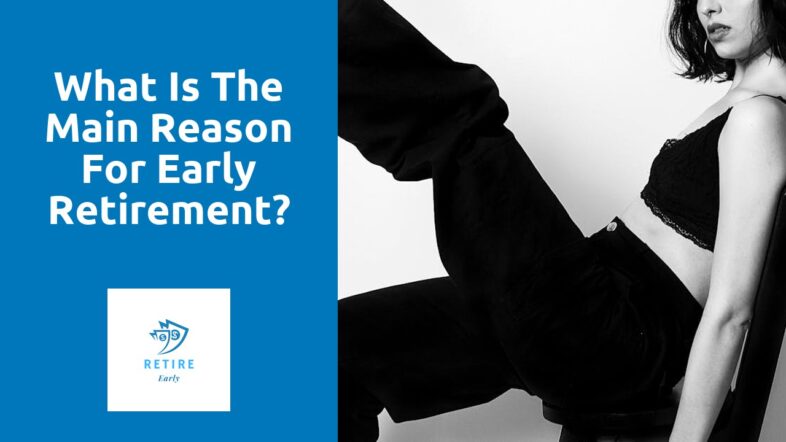Personal Choice
When considering the reasons behind early retirement, personal choice plays a significant role for many individuals. It is not uncommon for people to decide to retire early due to a variety of factors that are deeply personal to them. Some may simply feel ready to transition to a new phase of life, desiring to explore different opportunities or pursue hobbies and interests that they may not have had time for during their working years.
For others, the motivation to retire early stems from a desire to prioritize personal fulfillment and happiness over professional achievements. This decision is often driven by a realization that life is too short to spend in a job that no longer brings satisfaction or purpose. By choosing early retirement, individuals can take control of their own well-being and tailor their lifestyles to align with their values and aspirations.
Wanting to Enjoy Life Sooner
For many individuals, the desire to retire early stems from wanting to prioritize experiences and enjoyment in life sooner rather than later. The idea of being able to spend more time with family, travel, pursue hobbies, and simply relax at an earlier age can be a strong motivator for early retirement. Rather than waiting until later in life to fully embrace these activities, some individuals choose to retire early to make the most of their time and enjoy life to the fullest.
Moreover, the concept of early retirement aligns with the increasing emphasis on living in the present moment and focusing on personal happiness and fulfillment. By retiring early, individuals can break free from the traditional notion of working long hours for decades before being able to fully enjoy the fruits of their labor. This shift towards prioritizing happiness and experiences over material wealth and career progression is becoming more prevalent in today’s society, influencing many to consider early retirement as a means to live a more fulfilling life.
WorkLife Balance
Work-life balance has become a significant factor influencing the decision to retire early for many individuals. As societies have evolved, the emphasis on personal well-being has grown, leading people to reconsider their priorities. Striking a harmonious balance between work commitments and personal life has emerged as a crucial determinant in the decision-making process regarding when to retire.
In today’s fast-paced world, the boundaries between work and personal life have become increasingly blurred. Many employees are facing heightened stress levels and burnout due to the demands of their professional roles. As a result, individuals are seeking to retire early to reclaim their time and focus on aspects of life beyond work. This shift towards prioritizing personal well-being is reshaping the traditional notions of retirement and driving individuals to evaluate the quality of their lives beyond the constraints of a career.
Prioritizing Personal Wellbeing
Prioritizing personal wellbeing has become a prominent reason for early retirement among individuals in today’s fast-paced world. With the increasing awareness around the importance of mental and physical health, many people are choosing to step back from their careers to focus on self-care and overall wellness. Burnout, stress, and deteriorating health are common concerns that prompt individuals to prioritize their personal wellbeing over continuing to work in demanding environments.
For some, the decision to retire early in favor of personal wellbeing is a proactive choice aimed at preventing potential health issues or addressing existing ones. By taking the time to rest, recuperate, and engage in activities that promote relaxation and fulfillment, individuals can improve their quality of life and longevity. This shift in mindset highlights a growing understanding that personal wellbeing is foundational to a fulfilling and meaningful life, often outweighing the desire to remain in the workforce despite societal pressures.
Industry Trends
One of the significant factors contributing to early retirement is the ongoing industry trends. With the rapid advancements in technology and the rise of automation in various sectors, many individuals find themselves in positions where their roles become redundant. Companies are constantly looking to streamline their operations by adopting new technologies, which often leads to downsizing and restructuring. This can create uncertainty among employees, prompting some to consider early retirement as a way to navigate the changing landscape of the workforce.
Additionally, industry trends such as shifting market demands and global economic fluctuations can also influence an individual’s decision to retire early. For instance, in industries with declining growth prospects or increased competition, employees may face challenges in terms of job security and advancement opportunities. In such circumstances, some workers may opt for early retirement to proactively manage their career transitions and seek alternative paths that align better with their long-term goals.
Downsizing or Automation
Downsizing and automation in various industries have become significant factors contributing to the phenomenon of early retirement. With the advancement of technology, many companies are looking to streamline their operations by adopting automation processes, which often result in fewer job opportunities for human workers. As a result, employees who may have otherwise continued working until a standard retirement age find themselves faced with early retirement due to restructuring within their organizations.
Moreover, downsizing, especially during times of economic uncertainty, can prompt companies to reduce their workforce in order to cut costs and maintain profitability. This downsizing can force employees into early retirement as they may be offered voluntary retirement packages or be left with limited options for alternative employment. The impact of downsizing and automation on the workforce highlights the need for individuals to adapt to changing industry trends and consider their options for retirement earlier than anticipated.
FAQS
Why do some people choose to retire early?
Some people choose to retire early because they want to enjoy life sooner and prioritize their personal wellbeing.
What role does work-life balance play in early retirement decisions?
Work-life balance is a significant factor in early retirement decisions, as individuals may opt to retire early to achieve a better balance and focus on other aspects of their lives.
Are industry trends a contributing factor to early retirement?
Yes, industry trends can influence early retirement decisions, especially in cases of downsizing or automation where individuals may choose to retire early due to changes in their industry.
How common is early retirement as a personal choice?
Early retirement as a personal choice is becoming more common as individuals seek to prioritize their happiness and well-being over continuing to work until traditional retirement age.
Can early retirement be financially feasible?
With proper planning and financial management, early retirement can be financially feasible for individuals who have saved and invested wisely throughout their careers.
Related Links
top 5 reasons to retire early
What is the #1 reason to take Social Security at 62?
Are people happier after retirement?



